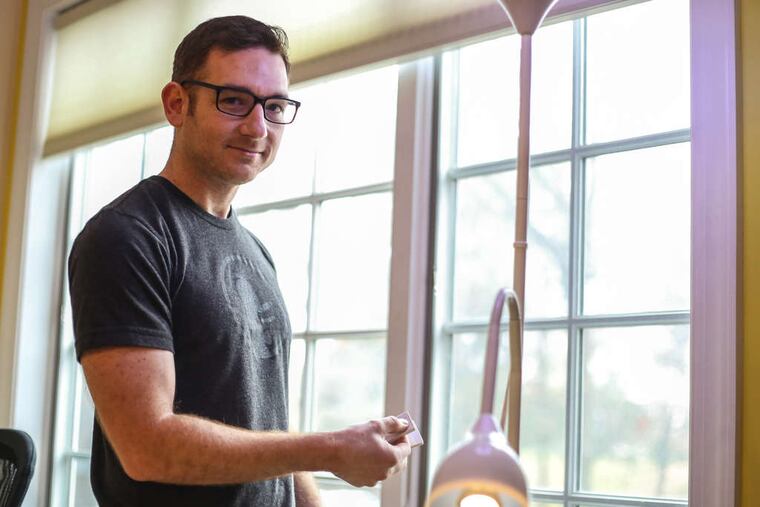PhillyDeals: Helping to link home, computing devices
"We want a cool office," said Gabriel Weinberg, founder of six-year-old DuckDuckGo, the Google-challenging search site that promises "Real Privacy - Smarter Search - Less Clutter."

"We want a cool office," said
Gabriel Weinberg
, founder of six-year-old
DuckDuckGo
, the Google-challenging search site that promises "Real Privacy - Smarter Search - Less Clutter."
The Massachusetts Institute of Technology grad's style sense prompted DuckDuckGo, which keeps 25 software developers and designers busy powering 200 million monthly user searches, to build its headquarters on the top two floors of a stone-fronted, turret-topped, asymmetrical office building on Paoli Pike two blocks from the Paoli Amtrak station and a short drive from Weinberg's home on Valley Forge Mountain.
It also led Weinberg to partner with another local tech firm, Zonoff, a Great Valley company that has raised $36 million from venture capitalists of late, to back Zonoff's "Internet of Things" software, which links home and computing appliances.
Zonoff helped DuckDuckGo build a system based on Zonoff's smartphone apps, with a dashboard that opens at a finger touch to remotely control locks, cameras, lights, utilities, and computer systems and settings.
"We're hearing a lot about home automation, but still very little about small-office automation," said Bob Cooper, Zonoff's marketing chief. "We think this is a great environment for small businesses. And DuckDuckGo is a good place to demonstrate it."
Home and small-business automators typically start with three or four devices, get excited as they learn more about what's available, and double the network within the first six months, said Zonoff founder Mike Harris, who ran Ravisent Technologies before setting up Zonoff in 2011. The company now employs 50 and is leasing larger offices so it can double staff over the next year.
Customers typically start with a wireless camera so they can watch workers (and any intruders), or a remote-controlled door lock so the boss can let people in even when he's not there. Other functions include a single switch that powers computers on or off, raises blinds, and adjusts thermostats - according to time and weather conditions.
DuckDuckGo installed 37 devices: Ecolink motion and light sensors; Aeotec smart power strips, with a wireless switch and signal in each outlet; and remote controls, power shades, and switch plates, all from Lutron Electronics Corp., in Coopersburg, near Quakertown.
Other devices: D-Link video cameras, and a wallet-size control hub to connect them; Levitron Z-Wave wall switches; and compatible Honeywell thermostats, Kwikset door locks, and Philips color LED lights.
The job was priced around $6,500, which includes the battery-powered blinds ($1,900) and electrical contractors ($1,700), though Cooper says all of the devices are available at Staples and other outlets.
Cooper said Weinberg's system saves the company money by lowering the thermostat and the blinds and shutting off power (and water) when not in use. Weinberg said he had never stopped to calculate those savings because he was more interested in the gadgets and what they do.
Critics of the "Internet of Things" worry that industries and users have taken years to settle on common standards. Expensive equipment from just a few years ago has already become tough to update.
Cooper said networks like the one at DuckDuckGo use well-established industry protocols like Z-Wave for home automation and ZigBee for larger networks. The devices communicate from a central node but directly to one another, through a "mesh network" of wireless connections that is easily expanded and updated, Cooper explained.
How's this working? Weinberg says he's happy, and not just because he no longer has to ask his wife to drive over to the office when he's out in Silicon Valley and open it for employees, developers, or other visitors.
"I wanted one switch to turn everything on and off, and to be able to add cool stuff, and that's what I have," Weinberg said. "That's a 'wow' moment."